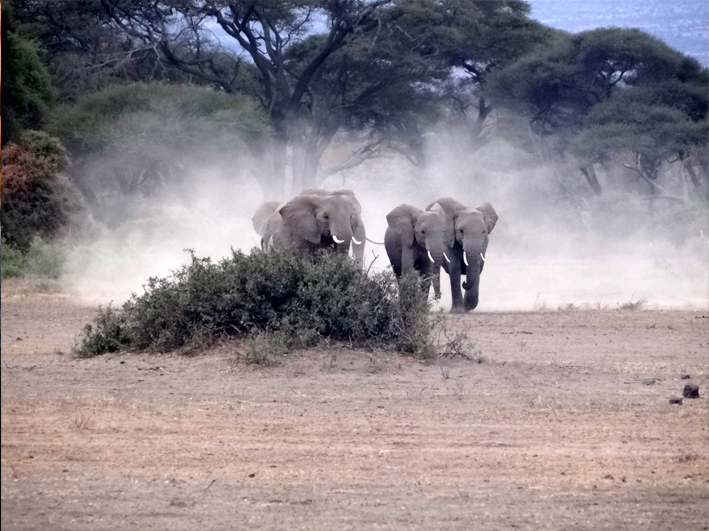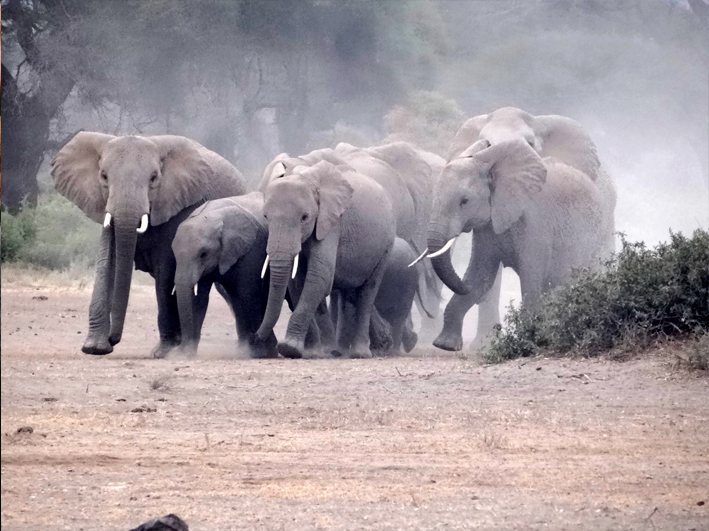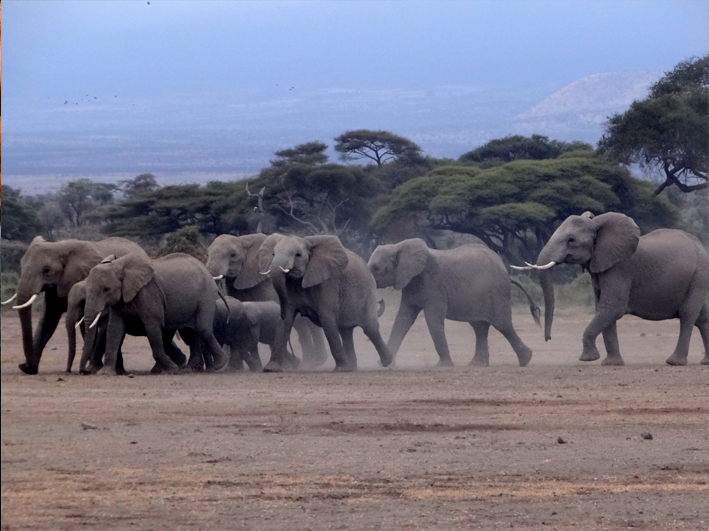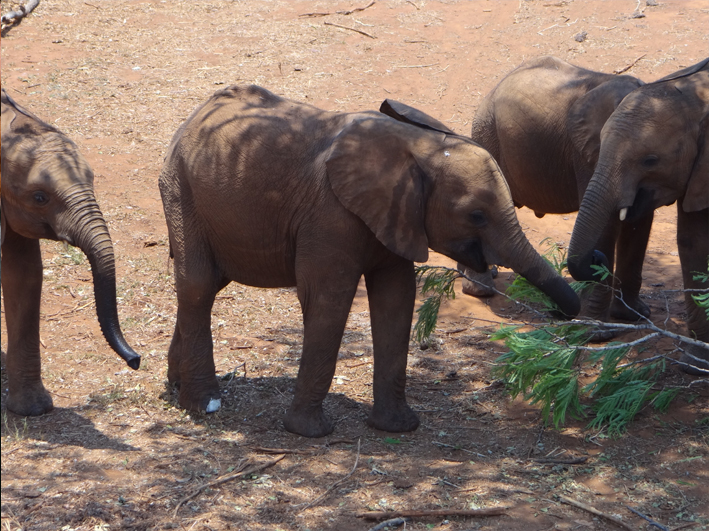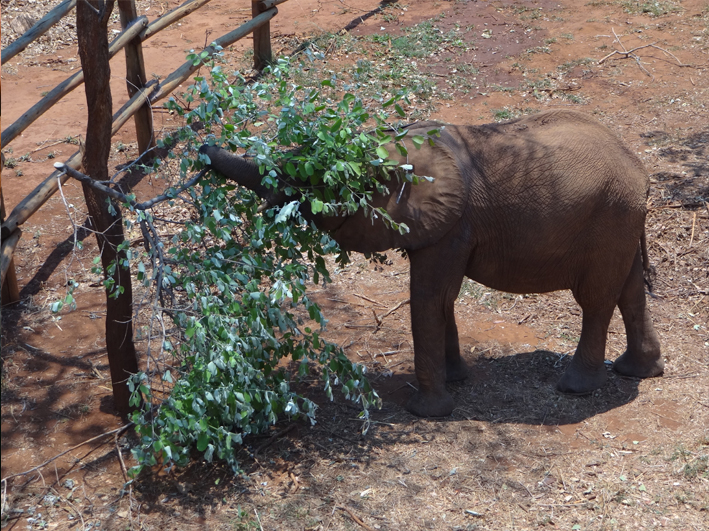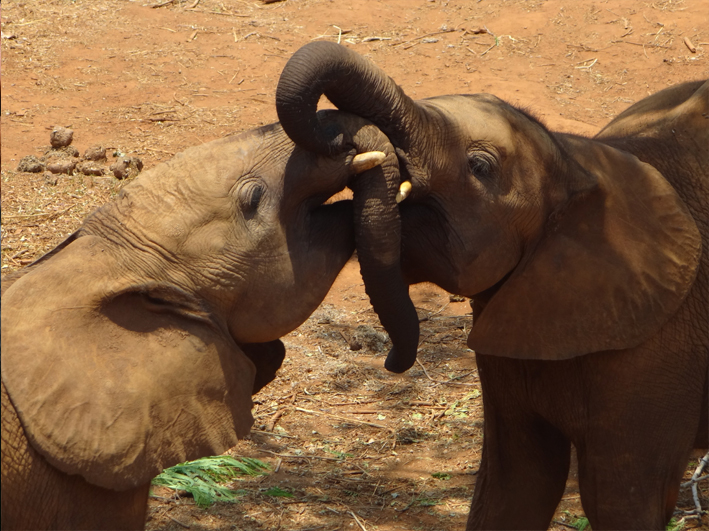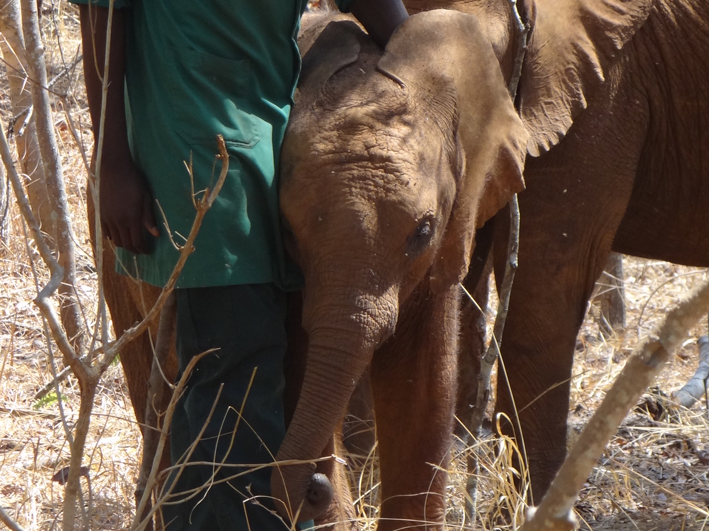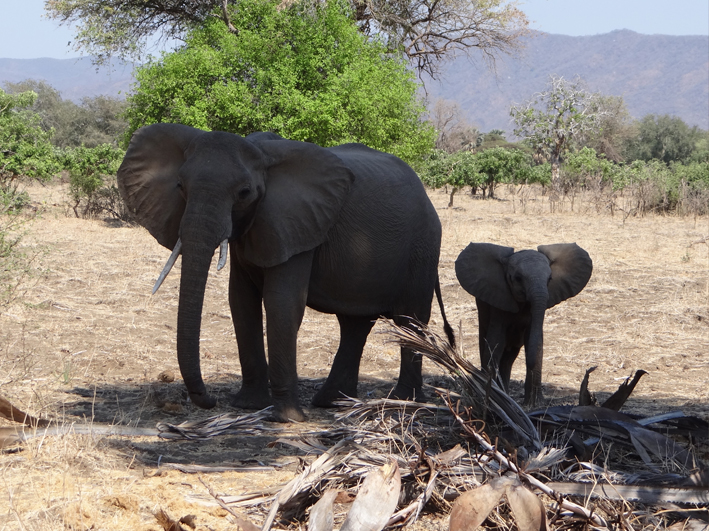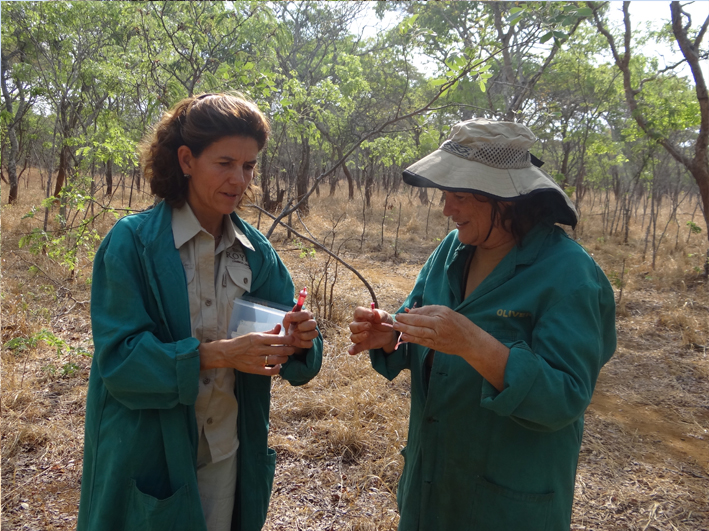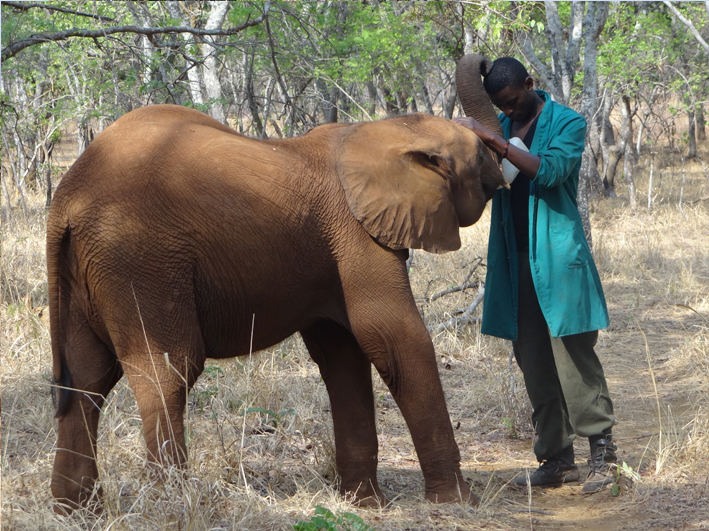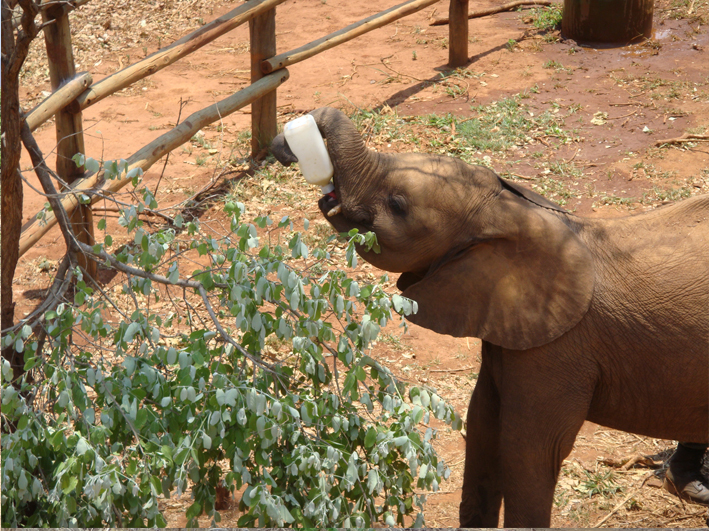Zambia
It is cruel: Poaching is steadily on the rise in Africa. Increasing numbers of young animals, especially elephant babies, are orphaned in the savannas and grasslands. To help these animals the Academy is developing a special milk replacer, with the objective of allowing a species appropriate rearing of healthy elephants.
Dr. Julia Countess Maltzan sees this as a labor of love: the objective of developing a specific milk replacer for elephant babies, which is presently not available in Africa, is to reduce the cost and optimize the rearing of orphaned elephants. To accomplish this, international literature on the topic was reviewed and the experience of different rehabilitation centers was compared.
One such station is the „Lilayi Elephant Orphanage Project“ run by the „Game Rangers International“ organization in Zambia, which Dr. Maltzan visited in November 2014, to examine young elephants presently being reared there and present ad hoc improvement proposals.
The plan is to produce an optimal, easily digestible elephant milk replacer and to test it in the field under the auspices of veterinary hospitals. This is to provide the foundation for a practical and cost-efficient way of hand feeding elephants which can be implemented in all African countries facing
these types of problems with elephants. ■



